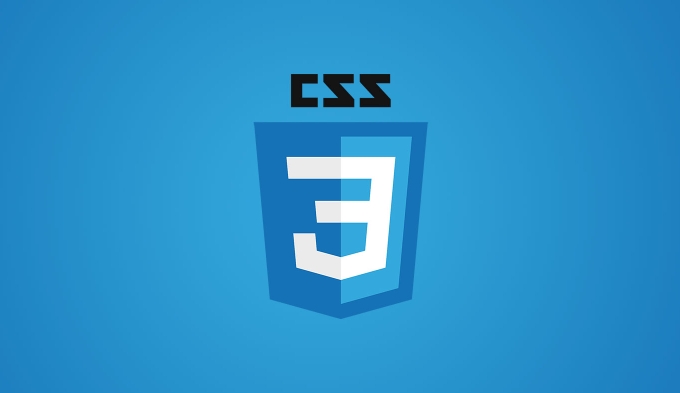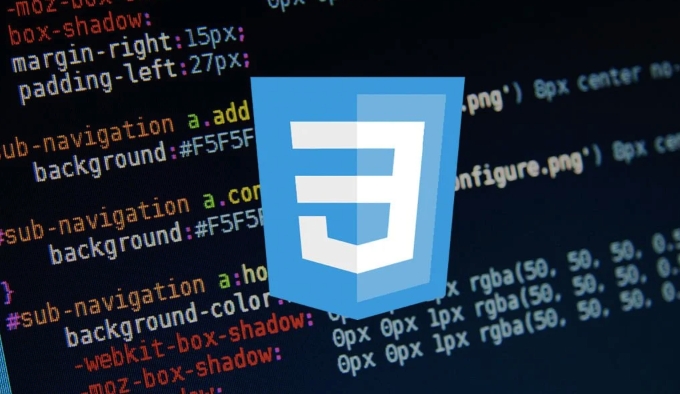 Web Front-end
Web Front-end
 CSS Tutorial
CSS Tutorial
 How do I debug CSS Selectors that are not applying styles as expected?
How do I debug CSS Selectors that are not applying styles as expected?
How do I debug CSS Selectors that are not applying styles as expected?
Jun 29, 2025 am 01:20 AMTo troubleshoot CSS selectors not applying styles, first verify if the selector matches any elements by using DevTools to copy and test the selector in the console. 1. If it returns an empty array, adjust the selector. 2. Check for specificity conflicts: IDs override classes, which override tags; use !important temporarily for testing. 3. Confirm no syntax errors like missing dots or hashtags, and ensure the stylesheet loads properly. 4. Validate pseudo-class usage, such as :nth-child(). 5. Apply temporary borders or backgrounds to visualize selected elements directly in the browser.

When your CSS selectors aren't applying styles the way you expect, it can be frustrating. The issue is often not with the style itself, but with how — or whether — the selector matches the HTML elements you're targeting.

Check if the Selector Matches Any Elements
First things first: does your selector actually match any element on the page? It's easy to typo a class name or misnest elements in a way that breaks expected behavior.

- Open your browser’s DevTools (usually right-click Inspect)
- Go to the Elements tab and find the HTML element you’re trying to target
- Right-click the element and choose “Copy” > “Copy selector” (or manually build your selector)
- Paste it into the Console tab and run
$$('your-selector-here')- If it returns an empty array, your selector isn’t matching anything
This helps confirm whether the problem is with selection or styling.
Use Specificity to Your Advantage (and Avoid Conflicts)
Even if your selector matches, another rule might override it due to higher specificity or later loading order.

- Look in the DevTools Styles panel to see if your styles are being crossed out
- Compare specificity:
- IDs (
#header) beat classes (.btn) - Classes beat tags (
div) - Inline styles beat almost everything
- IDs (
If you're stuck, temporarily use !important to test if it makes your style apply — but don’t leave it in production code unless absolutely necessary.
Also remember: order matters. If two rules have equal specificity, the one that appears last in the stylesheet wins.
Double-Check for Common Mistakes
Some issues are easy to overlook but easy to fix once you know what to look for.
- Are you missing a
.before a class selector or#before an ID? - Did you forget to close a quote or bracket somewhere in the CSS block?
- Is the stylesheet even loading? Check the Network tab in DevTools.
- Are you using a pseudo-class like
:hoveror:nth-child()correctly?
For example, li:nth-child(2) doesn’t mean "the second list item" — it means "any list item that is the second child of its parent." That subtle difference trips up a lot of people.
Try Debugging with Temporary Borders or Backgrounds
Sometimes the best way to see what’s happening is to make the affected elements obvious.
Try adding something like this temporarily:
.my-selector {
border: 2px solid red !important;
background-color: yellow !important;
}This helps visualize which elements are being selected — and which aren’t — without relying solely on computed styles. You can also do this directly in DevTools to test live.
That’s basically how you troubleshoot CSS selectors that aren’t working as intended. Most issues come down to mismatched selectors, conflicting styles, or small syntax errors. Once you know where to look, it gets much easier.
The above is the detailed content of How do I debug CSS Selectors that are not applying styles as expected?. For more information, please follow other related articles on the PHP Chinese website!

Hot AI Tools

Undress AI Tool
Undress images for free

Undresser.AI Undress
AI-powered app for creating realistic nude photos

AI Clothes Remover
Online AI tool for removing clothes from photos.

Clothoff.io
AI clothes remover

Video Face Swap
Swap faces in any video effortlessly with our completely free AI face swap tool!

Hot Article

Hot Tools

Notepad++7.3.1
Easy-to-use and free code editor

SublimeText3 Chinese version
Chinese version, very easy to use

Zend Studio 13.0.1
Powerful PHP integrated development environment

Dreamweaver CS6
Visual web development tools

SublimeText3 Mac version
God-level code editing software (SublimeText3)

Hot Topics
 What is 'render-blocking CSS'?
Jun 24, 2025 am 12:42 AM
What is 'render-blocking CSS'?
Jun 24, 2025 am 12:42 AM
CSS blocks page rendering because browsers view inline and external CSS as key resources by default, especially with imported stylesheets, header large amounts of inline CSS, and unoptimized media query styles. 1. Extract critical CSS and embed it into HTML; 2. Delay loading non-critical CSS through JavaScript; 3. Use media attributes to optimize loading such as print styles; 4. Compress and merge CSS to reduce requests. It is recommended to use tools to extract key CSS, combine rel="preload" asynchronous loading, and use media delayed loading reasonably to avoid excessive splitting and complex script control.
 How to use Lotties in Figma
Jun 14, 2025 am 10:17 AM
How to use Lotties in Figma
Jun 14, 2025 am 10:17 AM
In the following tutorial, I will show you how to create Lottie animations in Figma. We'll use two colorful designs to exmplify how you can animate in Figma, and then I'll show you how to go from Figma to Lottie animations. All you need is a free Fig
 Breaking Boundaries: Building a Tangram Puzzle With (S)CSS
Jun 13, 2025 am 11:33 AM
Breaking Boundaries: Building a Tangram Puzzle With (S)CSS
Jun 13, 2025 am 11:33 AM
We put it to the test and it turns out Sass can replace JavaScript, at least when it comes to low-level logic and puzzle behavior. With nothing but maps, mixins, functions, and a whole lot of math, we managed to bring our Tangram puzzle to life, no J
 External vs. Internal CSS: What's the Best Approach?
Jun 20, 2025 am 12:45 AM
External vs. Internal CSS: What's the Best Approach?
Jun 20, 2025 am 12:45 AM
ThebestapproachforCSSdependsontheproject'sspecificneeds.Forlargerprojects,externalCSSisbetterduetomaintainabilityandreusability;forsmallerprojectsorsingle-pageapplications,internalCSSmightbemoresuitable.It'scrucialtobalanceprojectsize,performanceneed
 Does my CSS must be on lower case?
Jun 19, 2025 am 12:29 AM
Does my CSS must be on lower case?
Jun 19, 2025 am 12:29 AM
No,CSSdoesnothavetobeinlowercase.However,usinglowercaseisrecommendedfor:1)Consistencyandreadability,2)Avoidingerrorsinrelatedtechnologies,3)Potentialperformancebenefits,and4)Improvedcollaborationwithinteams.
 CSS Case Sensitivity: Understanding What Matters
Jun 20, 2025 am 12:09 AM
CSS Case Sensitivity: Understanding What Matters
Jun 20, 2025 am 12:09 AM
CSSismostlycase-insensitive,butURLsandfontfamilynamesarecase-sensitive.1)Propertiesandvalueslikecolor:red;arenotcase-sensitive.2)URLsmustmatchtheserver'scase,e.g.,/images/Logo.png.3)Fontfamilynameslike'OpenSans'mustbeexact.
 What is Autoprefixer and how does it work?
Jul 02, 2025 am 01:15 AM
What is Autoprefixer and how does it work?
Jul 02, 2025 am 01:15 AM
Autoprefixer is a tool that automatically adds vendor prefixes to CSS attributes based on the target browser scope. 1. It solves the problem of manually maintaining prefixes with errors; 2. Work through the PostCSS plug-in form, parse CSS, analyze attributes that need to be prefixed, and generate code according to configuration; 3. The usage steps include installing plug-ins, setting browserslist, and enabling them in the build process; 4. Notes include not manually adding prefixes, keeping configuration updates, prefixes not all attributes, and it is recommended to use them with the preprocessor.
 What are CSS counters?
Jun 19, 2025 am 12:34 AM
What are CSS counters?
Jun 19, 2025 am 12:34 AM
CSScounterscanautomaticallynumbersectionsandlists.1)Usecounter-resettoinitialize,counter-incrementtoincrease,andcounter()orcounters()todisplayvalues.2)CombinewithJavaScriptfordynamiccontenttoensureaccurateupdates.





